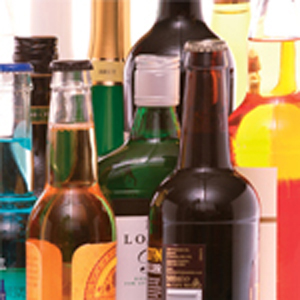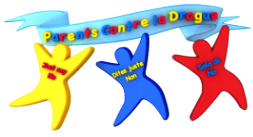
| |
| |
What is alcohol?
Alcohol is a depressant
that slows brain function and poisons the body. Ethyl alcohol or
ethanol is the basic chemical found in all alcoholic beverages. |
| |
| |
Consumption
form :
Mainly drunk.
|
|
|
|
|
What
are
the
effects? |
|
Category :
Depressor |
Caractéristics
:
Ethylic alcohol, or ethanol, is the chemical
substance of basis contained in all alcoholic
drinks. It’s generally produced from the
fermentation of fruits, vegetables or cereals.
Fermented drinks contain a maximum of 15% of alcohol
pure (wine, beer, cider). Distilled drinks, like
junipers, aperitifs or brandies can contain as far
as a 45% of alcohol pure.
|
|
|
Therefore, alcoholic
drinks are more or less powerful or charged of
alcohol pure.
They
can equally be fabricated
according to different recipes, scented, sugared,
mixed, coloured, etc. However what are important to
appreciate are its effects, not its composition, the
amount of alcohol pure contained, that is always the
same and always produces the same effects.
Introduced into the human body in the form of
alcoholic drink, alcohol passes to the blood in few
a minutes and arrives to all the organs, of which
the most delicates are the brain and the liver. |
|
|
|
General
order effects:
INTOXICATION PROCESS
Once alcohol is in the blood, no
food or drink can stop its effects.
The sugar contained in fruits can,
by accelerating the elimination of
alcohol in the blood, shorten the
duration of its effects.
As alcohol passes quickly to the
blood, its presence into it begins, at the same
time. It reaches its maximum level in about one hour
and decreases slowly.
Alcoholic intoxication is
characterized for three successive typical phases: a
phase of excitement, a state of intoxication
followed by a depression state that can evolve into
a coma.
The excitement
phase
is characterized by an impression of
intellectual and relational fluency, a lost of
control of the intellectual functions and a release
of the instinctive impulses. The individual takes
inconsiderate risks (especially when driving his
car) and loses all objective appreciation of
reality.
|
|
|
|
The intoxication phase is recognizable by unstable walk,
hesitant speech, confused thought, lost of
inhibitions, non controlled and non coordinated
gestures; it’s also manifested by certain somatic
signs: dilated pupils, nausea, vomits and diarrhoea. |
|
|
The depression
phase
takes the individual to sleepiness.
Sometimes, the intoxication can evolve to a coma;
the individual is in deeply sleep: dilated pupils,
lack of reaction to different stimulations, vomits
and lost of urine reflect the gravity of this state
that, like all toxic coma, must be treated at a
hospital. |
|
|
Some states of alcoholic intoxication
are accompanied by hallucinations, convulsions or
delirium and can cause violent reactions in the
individual. Jealousy or persecution subjects are
frequent, in delirious ways. In other cases,
intoxication engenders a dangerous state of
depression that can lead to suicide.
Theses
effects can come with problems of balance or speech. |
|
|
Short
term effects: |
|
● |
|
Relaxation or excitation. |
|
● |
|
Intoxication, euphoria. |
|
|
|
At short term and in high doses,
alcohol can, according to the temper, make one
person sleepy or turn him aggressive. It’s the cause
of traffic or work accidents as well as acts of
violence.
Long
term
effects:
Alcohol attacks brain and liver and
can cause great damages: psychiatric complications,
damage to brain and liver. |
|
|
|
|
Dependence:
Some people risk to pass from a
controlled recreative consumption to a
non-controlled
excessive consumption. Very changing moments,
according to the individuals, follow problems
associated to excessive alcoholic consumption. Some
live repeated intoxications with long periods of
interruption without becoming dependents. |
|
|
|
|
Legislation:
Alcohol is a licit product, its sale and use are
regulated. |
|
|
|

|
|
|
|
|
|
|
|
|
DONATE
& make a
difference |
|
We have many young consumers to stop and support the
families affected by addictionous. |
|
|
|
|
|
|
|
|
|
|
DRUG
GUIDE |
| |
| Read our guide to learn about
drugs. |
| |
|
| |
| |
| |
|
TESTIMONY |
| |
The testimony came from parents and
young people face the problem of addiction.
You can also send your own. |
| |
|
| |
|



